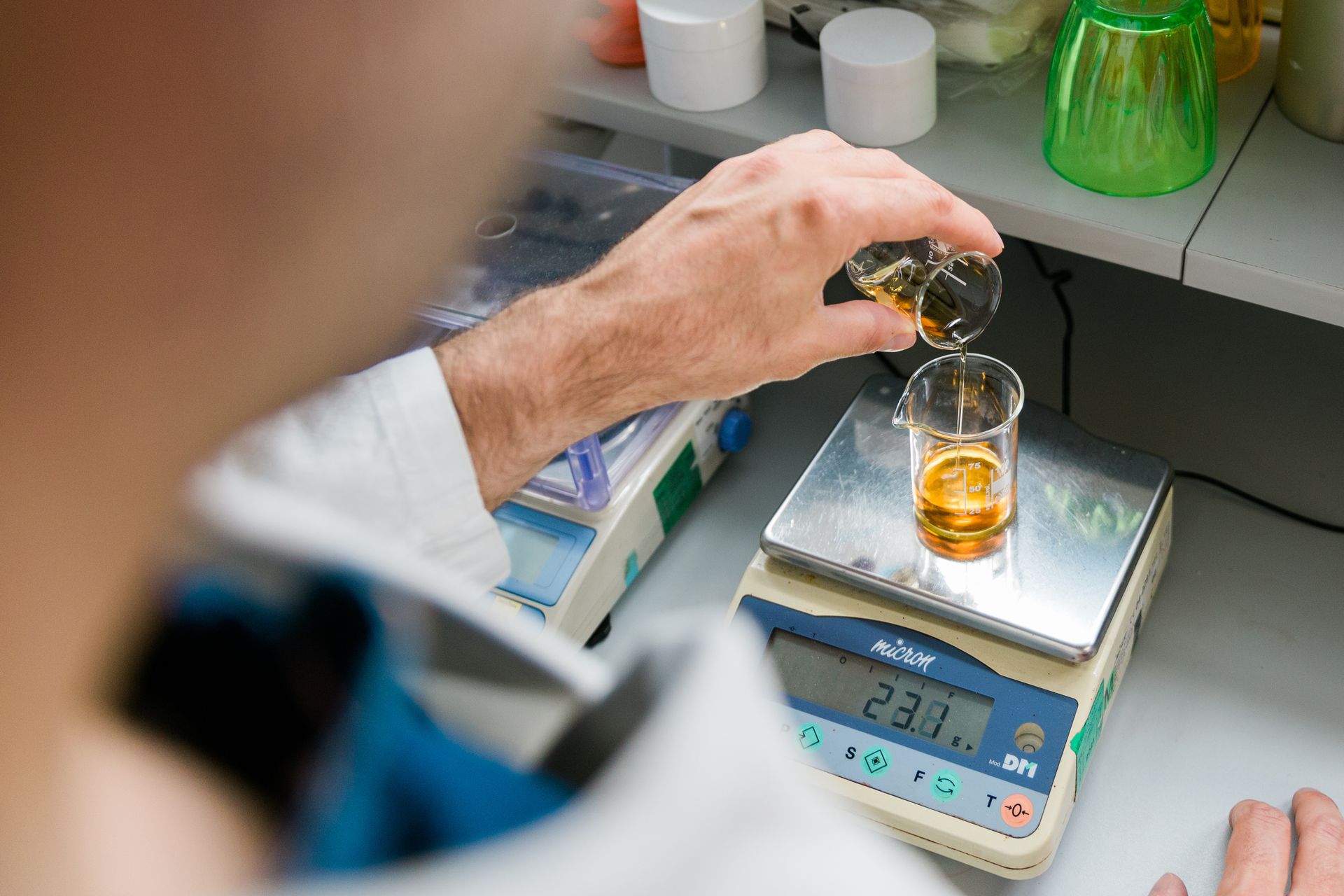The Training and Education of Pharmacists in Compounding Medications

Prescribing medication is an intricate process that can’t be done haphazardly. Beyond the rigorous medical education and job training required to qualify for the role, pharmacists also need a keen understanding of each medication they utilize in compounding and how they can influence each other to avoid extemporaneously creating synergistic or antagonistic reactions in patients.
What Are Compounding Medications?
Compounding is when a licensed pharmacist mixes, combines or modifies ingredients in a medication to suit the specific needs of individual patients. If a patient needs a certain medication but is allergic to one of the ingredients (a common example being sesame oil in some intramuscular injections), compounding can allow a pharmacist to supplement an alternative component to ensure their patient can receive the most effective prescription safely. Alternatively, if a patient requires a specific medication to have a certain dosage that isn’t commercially available, a pharmacist can engineer one using their pharmaceutical expertise and lab resources.
How Pharmacists Are Trained in Compounding
It takes years and dedicated study to become proficient enough to safely and effectively compound or modify medications, dosages or delivery methods.
Pharmacists undergo rigorous coursework and hands-on training to develop the skills necessary for compounding. They learn the different properties of different ingredients and their interactions before they learn how to formulate compounded medications. Pharmacists also receive rigorous training in quality control. Compounded medications aren’t subject to premarket safety and quality review by the FDA, so the duty of confirming accuracy, purity and potency falls on the licensed pharmacist’s shoulders. As such, they receive intensive quality control training so they can confidently confirm their compounded prescriptions adhere to the highest standards of pharmaceutical care.
Another critical component of compounding is the need for sterile vs. non-sterile preparation. Sterile preparation involves the use of antiseptic techniques to protect the compounded drugs from microorganisms and is most commonly used for medications that are injected or ingested – in contrast, most topical ointments are made in non-sterile environments. Knowing when and how to thoroughly sanitize work areas and instruments to ensure safe and unadulterated compounding results is critical for any licensed pharmacist.
Benefits and Drawbacks of Compounding Medications
Benefits
- Personalization: Compounding medications allow pharmacists to custom-tailor drug formulas to maximize their efficacy on a case-by-case basis, increasing the likelihood of optimal therapeutic outcomes.
- Flexibility: Patients with allergies and sensitivities don’t have to worry about missing out on the best treatment possible, as compounding delivers potent results while excluding ingredients that may be dangerous for the patient.
- Dosage Customization: Certain patients may require a customized dosage that’s stronger or weaker than what’s commercially available, or with the same ingredients but in other forms like a liquid for patients who can’t swallow pills. Compounding makes these customized medications available to accommodate the patient’s needs and preferences.
Drawbacks
- Not FDA-Approved:
Because compounded drugs aren’t FDA-approved, they are often seen as having an elevated risk of variability and are thus perceived as higher-risk drugs.
- Restricted Coverage: Compounded medications may not be covered by insurance due to the drugs’ experimental nature, although some plans provide reimbursement for out-of-pocket costs. These medications also still undergo medication safety surveillance.
- Limited Availability: Not all pharmacies offer compounding services, which can make it difficult for patients who require customized medications.
Not every patient needs compounded medications. In fact, most patients are able to take commercial medication and doses without issue. But if your needs can’t be met by commercially available prescriptions, the experienced pharmacists at St. Hope Pharmacy can help. They have undergone extensive training to produce safe and potent compounded medications and will ensure you receive personalized pharmaceutical solutions tailored to you that enhance your well-being.
Receive Compounded Medications From a Dedicated and Compassionate Pharmacy Equipped and Ready to Help
If you’re looking for a reliable pharmacy or need to make a switch, St. Hope Pharmacy is the option hundreds of Houston patients choose to get the medications they need, whether it’s a commercial prescription or a custom-made one. Our expert pharmacists will guide you through every step of your medication plan so you never feel confused about what you’re taking and can adhere to your treatment confidently.
Contact one of our six pharmacies in Bellaire, Conroe, Houston, Sugar Land and Dickinson and have your prescription transferred today.


